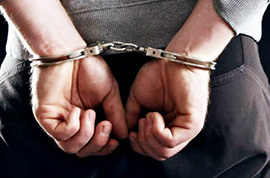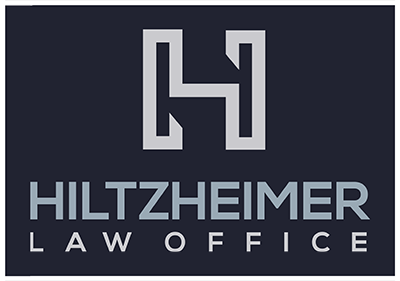Fraud Crimes Defense Attorney in Raleigh & Durham, NC
Fraud Crimes under North Carolina and federal law cover a broad range of conduct. From prescription fraud to forgery/check fraud to possession of counterfeit instruments, fraud charges encompass conduct that involves the use of deception to obtain either money or other material gains.
Fraud charges can be extremely serious under North Carolina law. While “uttering,” or writing a worthless check, is a Class 3 misdemeanor if the value is less than $2000, most other fraud charges are felonies. If you’ve been charged with a fraud crime, contact an experienced Durham criminal lawyer immediately to make sure your rights are protected from the outset of your case.
Categories of Fraud Crimes
WORTHLESS CHECKS
Misdemeanor Worthless Checks
Writing a worthless check is a crime in North Carolina if a person “utters” or issues that check to another person or business, while knowing at the time that the associated account has insufficient funds. If the check is for $2000 or less, the crime is classified as a Class 3 misdemeanor for a first (or second, or third) offense. Fourth and subsequent charges for the same conduct will be classified as a Class 1 misdemeanor. Similarly, writing a check for any amount for an associated account that is either closed or doesn’t exist will be classified as a Class 1 misdemeanor, as long as the individual writing the check was aware of the account status at the time the check was issued.
Felony Worthless Checks
A worthless check offense is escalated to a felony when the amount of the bad check is over $2000. In that case the crime will be charged as a Class I felony.
The law covering worthless checks is codified as follows:
§ 14-107. Worthless checks; multiple presentment of checks.
(a) It is unlawful for any person, firm or corporation, to draw, make, utter or issue and deliver to another, any check or draft on any bank or depository, for the payment of money or its equivalent, knowing at the time of the making, drawing, uttering, issuing and delivering the check or draft, that the maker or drawer of it:
(1) Has not sufficient funds on deposit in or credit with the bank or depository with which to pay the check or draft upon presentation, or
(2) Has previously presented the check or draft for the payment of money or its equivalent.
(b) It is unlawful for any person, firm or corporation to solicit or to aid and abet any other person, firm or corporation to draw, make, utter or issue and deliver to any person, firm or corporation, any check or draft on any bank or depository for the payment of money or its equivalent, being informed, knowing or having reasonable grounds for believing at the time of the soliciting or the aiding and abetting that the maker or the drawer of the check or draft:
(1) Has not sufficient funds on deposit in, or credit with, the bank or depository with which to pay the check or draft upon presentation, or
(2) Has previously presented the check or draft for the payment of money or its equivalent.
(c) The word “credit” as used in this section means an arrangement or understanding with the bank or depository for the payment of a check or draft.
(d) A violation of this section is a Class I felony if the amount of the check or draft is more than two thousand dollars ($2,000). If the amount of the check or draft is two thousand dollars ($2,000) or less, a violation of this section is a misdemeanor punishable as follows:
(1) Except as provided in subdivision (3) or (4) of this subsection, the person is guilty of a Class 3 misdemeanor. Provided, however, if the person has been convicted three times of violating this section, the person shall on the fourth and all subsequent convictions (i) be punished as for a Class 1 misdemeanor and (ii) be ordered, as a condition of probation, to refrain from maintaining a checking account or making or uttering a check for three years.
(2) Repealed by Session Laws 1999-408, s. 1, effective December 1, 1999.
(3) If the check or draft is drawn upon a nonexistent account, the person is guilty of a Class 1 misdemeanor.
(4) If the check or draft is drawn upon an account that has been closed by the drawer, or that the drawer knows to have been closed by the bank or depository, prior to time the check is drawn, the person is guilty of a Class 1 misdemeanor.
(e) In deciding to impose any sentence other than an active prison sentence, the sentencing judge shall consider and may require, in accordance with the provisions of G.S. 15A-1343, restitution to the victim for (i) the amount of the check or draft, (ii) any service charges imposed on the payee by a bank or depository for processing the dishonored check, and (iii) any processing fees imposed by the payee pursuant to G.S. 25-3-506, and each prosecuting witness (whether or not under subpoena) shall be entitled to a witness fee as provided by G.S. 7A-314 which shall be taxed as part of the cost and assessed to the defendant.
Forgery and Counterfeit Instruments
Forgery of a Financial Instrument
If you are found to have forged or counterfeited a credit card or similar instrument, or merely be in possession of a counterfeit card, you may be charged with a Class I felony. If you are found to be in possession of five or more counterfeit instruments with the intent to defraud another person, financial institution, or governmental entity
The law covering forgery and counterfeit instruments is codified as follows:
§ 14-119. Forgery of notes, checks, and other securities; counterfeiting of instruments.
(a) It is unlawful for any person to forge or counterfeit any instrument, or possess any counterfeit instrument, with the intent to injure or defraud any person, financial institution, or governmental unit. Any person in violation of this subsection is guilty of a Class I felony.
(b) Any person who transports or possesses five or more counterfeit instruments with the intent to injure or defraud any person, financial institution, or governmental unit is guilty of a Class G felony.
(c) As used in this Article, the term:
(1) “Counterfeit” means to manufacture, copy, reproduce, or forge an instrument that purports to be genuine, but is not, because it has been falsely copied, reproduced, forged, manufactured, embossed, encoded, duplicated, or altered.
(2) “Financial institution” means any mutual fund, money market fund, credit union, savings and loan association, bank, or similar institution, either foreign or domestic.
(3) “Governmental unit” means the United States, any United States territory, any state of the United States, any political subdivision, agency, or instrumentality of any state, or any foreign jurisdiction.
(4) “Instrument” means (i) any currency, bill, note, warrant, check, order, or similar instrument of or on any financial institution or governmental unit, or any cashier or officer of the institution or unit; or (ii) any security issued by, or on behalf of, any corporation, financial institution, or governmental unit.
Collateral Consequences
In addition to the criminal penalties for fraud charges, a conviction can haunt you for the rest of your life. It may limit your ability to get a new job, or advance in your current position. It may prevent you from being accepted into the college or other educational program that would allow you to advance in your career. Choosing the right attorney at the outset of your case may be one of the most important decisions of your life.
Penalties for Fraud Crimes

The penalties for fraud, forgery, and counterfeiting crimes in North Carolina can include court fines, restitution, probation, and even jail time. Not to mention a permanent criminal record. Attorney Hiltzheimer understands the seriousness of a criminal charge to the individual, and will work hard to minimize the consequences to you — including obtaining an outright dismissal if there is a way to achieve that optimal outcome in your case.
Potential Defenses to Fraud Charges
While the fraud statutes in North Carolina cover a broad range of conduct, you are not automatically guilty just because you’ve been charged with a fraud crime. There are potential defenses to fraud charges, including a simple lack of intent in many cases. For example, if you are in possession of a counterfeit credit card or gift card, the State would have to prove at trial that you had the intent to defraud a person, bank, or governmental agency with that instrument. If you are charged with uttering a bad check, the State would have to prove — beyond a reasonable doubt — that you either knew the account was closed or that there were insufficient funds at the time you issued the check. You may be charged for simply writing a bad check, but that doesn’t mean you’re guilty under North Carolina law. There may be other defenses available, depending on the specific facts of your case.
Protecting Your Rights
If you are charged with fraud, or any criminal charge, you have the right to remain silent, and in almost every scenario it is in your interest to take advantage of that right. In no case should you confess to committing any criminal act without an attorney present and without the advice of that attorney. If you invoke your right to remain silent, as opposed to “coming clean” to the authorities on the scene, you will give the State one less piece of evidence to use against you in the prosecution of your case. And if you retain an experienced trial lawyer from Hiltzheimer Law Office, we will meticulously evaluate your case for every possible defense.
Deferred Prosecution
If you are charged with a fraud crime in North Carolina, and you have no prior criminal record, you may be eligible for a deferred prosecution agreement. Hiltzheimer Law Office has successfully negotiated deferred prosecution agreements for numerous clients in a wide range of misdemeanor and felony cases. If you are fortunate enough to be accepted into a deferred prosecution agreement, and you successfully complete the terms, your case will be dismissed in its entirety upon completion of the program — typically community service, a probationary period, and restitution in some circumstances.
Expungement of Fraud Charges
Many people mistakenly believe that if their fraud charge is dismissed, their record is clean. But if an employer, school, or government agency runs a comprehensive criminal record check, they will be able to see that you were charged with a crime. While it may seem unfair, some employers will decline to hire an individual just because he or she was previously charged with a crime. As a result, you may want to consider petitioning the court for an expungement, if you are eligible, which effectively wipes your record clean after securing a dismissal of the charge.
Call Our Office for a Free, Confidential Consultation
Call a Raleigh & Durham fraud defense lawyer if you have been arrested or charged with any misdemeanor or felony offense in Raleigh or Durham, North Carolina, whether a theft crime or otherwise. Contact us today for a free, confidential consultation and case evaluation at (919) 899-9404.

 Reviews
Reviews